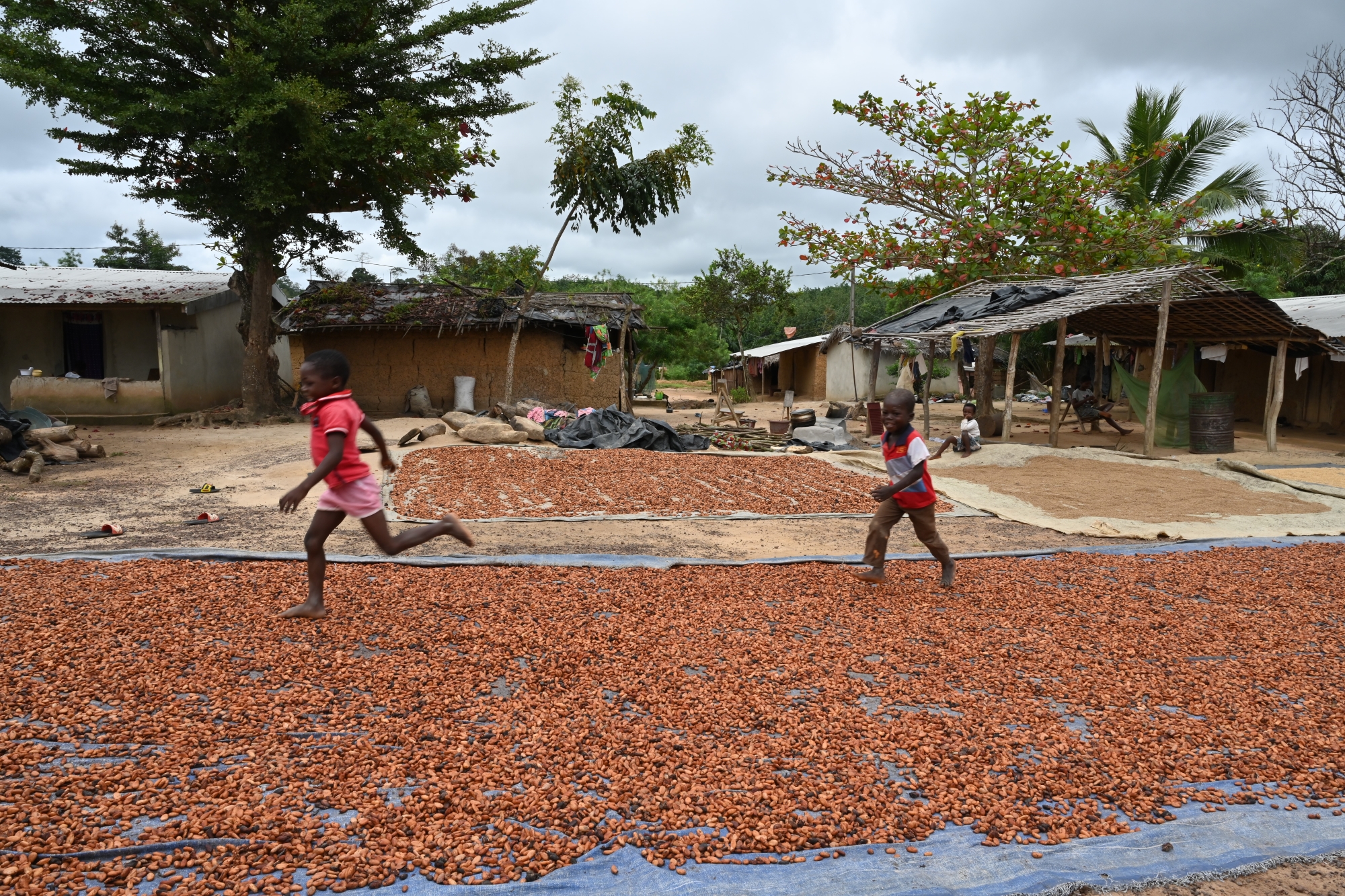Changes and results at the community level
Improved access to and quality of (formal) education
Across hundreds of villages, WNCB has set up 100 classes passerelles or bridge classes that have helped 2,000 children at risk or working, and that have dropped out of school to reconnect with learning and bring themselves back up to age-appropriate levels. 1,500 children were admitted to the formal education system.
To ensure the continuity of schooling, 2,000 children were able to obtain legal identity documents, which are a fundamental right in themselves and a prerequisite for continuing education beyond the primary level. Additionally, school kits were distributed to 2,000 children from economically vulnerable families to facilitate their access to and/or retention in the formal education system.
WNCB has contributed with learning materials, finding and training teachers, identifying communities that have educational needs, and by facilitating communities to pool resources to build their own school buildings. Children in the bridge classes are learning to read and write, opening pathways to other sources of income and different futures. The results of the bridge classes were satisfactory thanks to the Literacy Boost and Numeracy Boost approaches and the open reading spaces.
The strong collaboration with regional education authorities like DRENA, led to 10 bridge schools now being incorporated into the formal education system. As bridge schools become formalized, they gain access to more funding and materials, bringing the formal education system into areas that were previously inaccessible or overlooked. The remaining 90 bridge classes continue operating with the support of the community members.
Bridge classes and reading spaces were managed by facilitators selected by educational counsellors from the national education system and trained by the WNCB teams. These facilitators represent a potential pool of professionals who can be deployed to formal schools to address the shortage of teachers. Just like these facilitators, teachers in traditional schools received training to facilitate the integration of learners from bridge classes into formal schools. These training sessions were combined with awareness sessions on the role of teachers and students in eliminating child labour.
Improved farming techniques
Together with partner ANADEE, WNCB has rolled out so-called champs écoles (field schools) in more than a dozen villages across the Nawa. The idea behind the schools is for cocoa producers in the village to cooperatively test and learn about new agricultural techniques to improve the health of the cocoa trees and increase the harvest. The parcels where they conduct the school are donated by one of the village’s farmers, allowing their neighbours and fellow producers to grow their production together.
Many cocoa farmers have learned new techniques, helping them to both increase their yield and their resilience to the effects of climate change and swollen shoot, a blight that increasingly threatens cocoa trees across the country. In doing so, farmers earn more, maintain sustainable farms, and children are afforded the opportunity to go to school or seek alternative employment.
Stronger social structures
Community mobilisation through community structures, significant changes have been observed in the practices and attitudes regarding respect for children’s rights. For instance, parents are resorting to violence less and less as a means of disciplining their children, and adults in the communities are actively involved in identifying children at risk or engaged in child labour. Moreover, community members are not hesitant to engage in negotiations with parents to have children stop working and enrol them in school. In some cases, adults have provided material support to other community members to enable them to enrol or keep their children in school, or to enrol them in vocational training through apprenticeship.
Increased income and safety nets
The investment in economic initiatives boosted the economic power of many households. Indeed, the social situation of more than 72% of VSLA beneficiaries improved through income control, access to material goods and health services, food security enhancement, and the consolidation of cohesion within different families and communities.
Over 2,750 individual IGAs and 230 VSLA groups were established in the agricultural, agro-pastoral, small business, and service sectors. Through VSLAs, many community members at the village level feel increased cohesion and collaborate more with their neighbours. The VSLAs require them to talk, identify needs, plan, and make decisions collectively. By bringing community members together regularly around their shared needs and ambitions, new ideas and shared understandings emerge, helping neighbours to find ways to work together and support each other. This cohesion forms the basis of a stronger safety net when times are hard, but also to ensure that all community members live up to their shared standards and work together to mitigate child labour.
Increased children’s participation
The WNCB alliance leveraged children’s participation as agents of change through child groups within communities and through U-Report, a social platform developed by UNICEF in partnership with the Government of Côte d’Ivoire, available via SMS and Facebook, where children and young people express their views on topics important to them through short surveys. The survey conducted in June 2021 on the theme of child labour saw the participation of approximately 30,000 children and young people. Furthermore, the National U-Reporters Camp held in August 2023 allowed 500 adolescents and young participants to present innovative actions aimed at eliminating child labour.

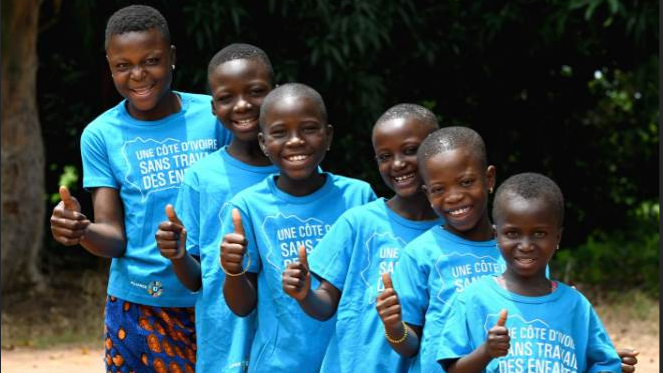
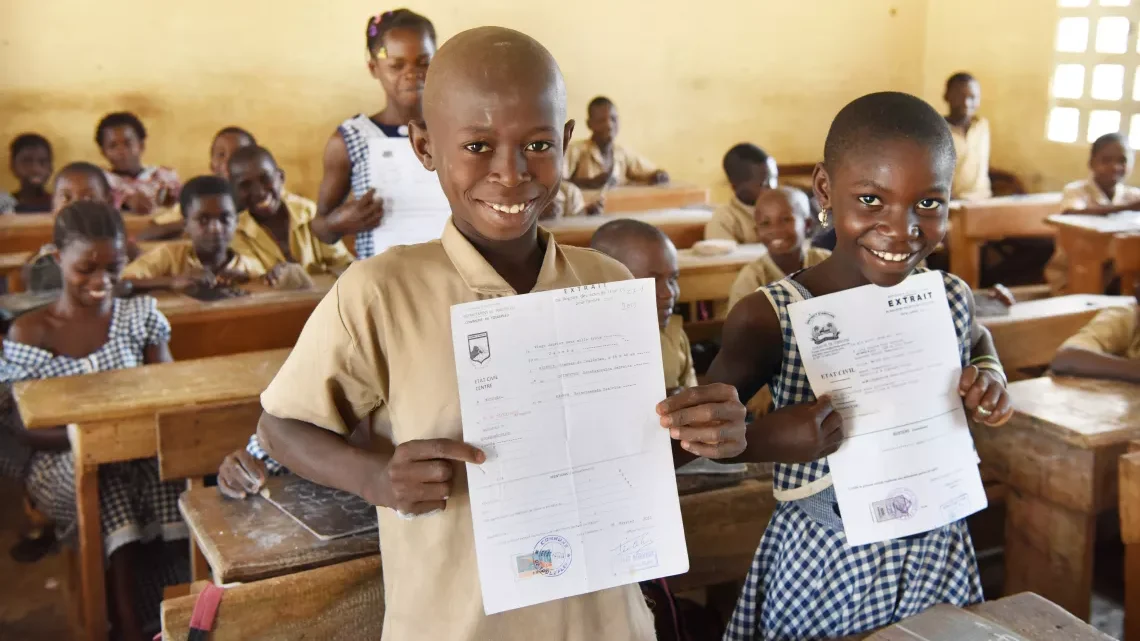
Changes and results in the cocoa supply chain
Decrease in child labour
Despite best efforts, there are still many children active in cocoa farming across the regions where WNCB is active. WNCB partners continue to engage with cocoa cooperatives, farmers, and other actors in the supply chain to mitigate child labour. Where children do find themselves working, WNCB’s efforts have led cooperatives and farming communities to ensure that children undertake less dangerous forms of work – moving away from wielding machetes and arduous long walks with heavy loads to tasks like clearing brush or inspecting and marking trees and cocoa pods.
Self-assessment and action plans for cooperatives
After training more than 15 cocoa cooperatives in governance and children’s rights, and providing technical support on mitigation plans, these cooperatives have put in place assessment processes that feed into concrete action plans to prevent, mitigate, remediate, and ultimately eliminate child labour in their production chain. Together with the assessment tool, the efforts help the cooperatives to determine the baseline of child labour that exists now and how to take real steps to improve from there.
Better equipped national council on coffee and cocoa production
WNCB’s collaboration with the Conseil de Café-Cacao, the national council on coffee and cocoa production and the regulator of the sector, has helped to introduce children’s rights and welfare into the regulatory process. Together with the Conseil, WNCB has ensured that children’s rights and child labour now factor into the certification and inspection processes carried out by the Conseil, helping to place children more firmly in the purview of all actors in the cocoa supply chain.
Increased knowledge of CRBP
In the Nawa region, WNCB works with the Coffee and Cocoa Council (CCC), the Association of Presidents of the Board of Directors (PCA) of Cocoa Cooperatives of Côte d’Ivoire (ASPCACCI), 87 cooperative societies, and cocoa-producing communities. These entities have been sensitized to promote and protect children’s rights within their supply chains. The cooperatives are now part of the child protection platforms and provide material and logistical support for the operation of these platforms. For example, the Grand Zattry cooperative provided a vehicle to distribute school kits to children in the area.
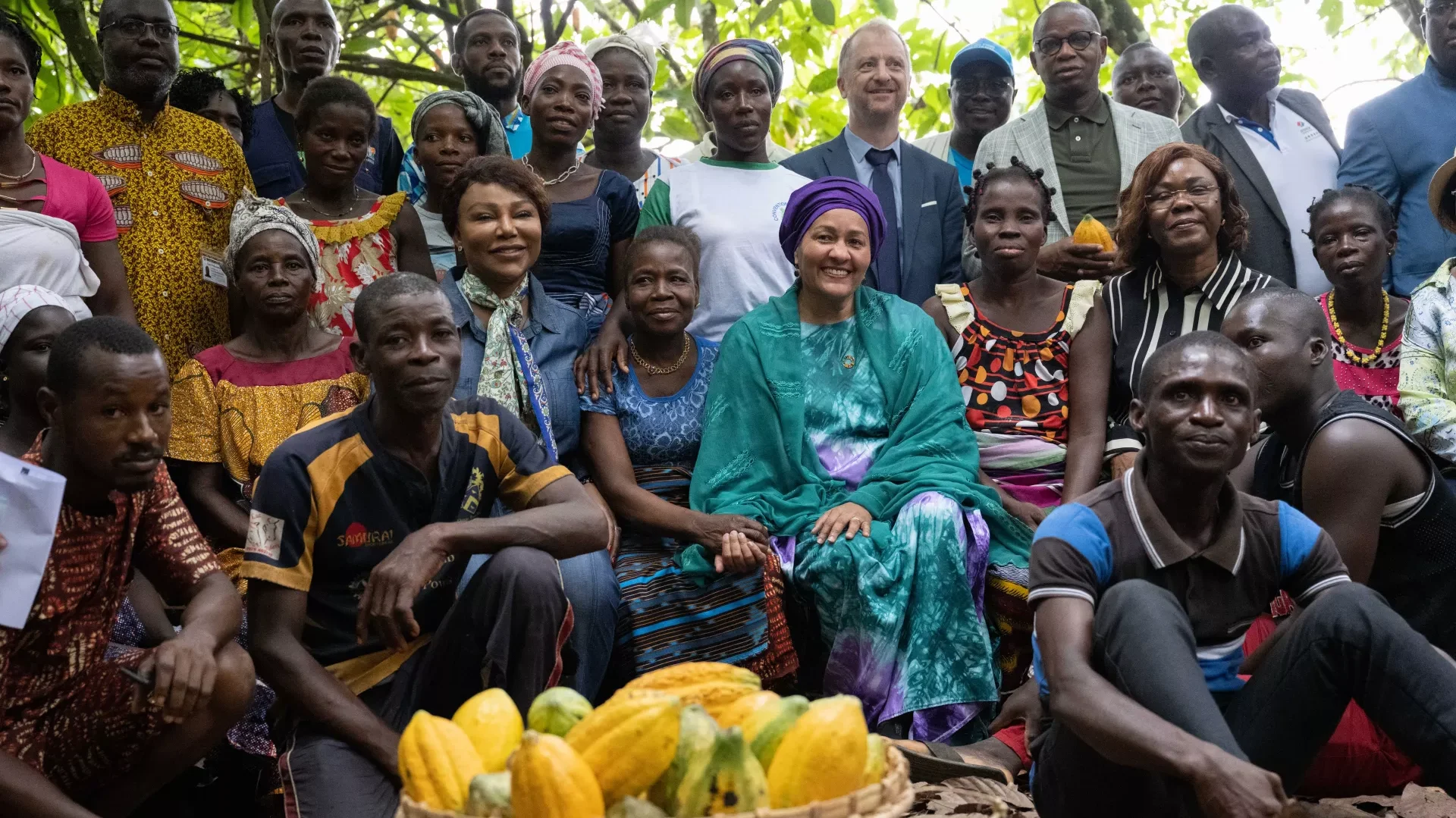
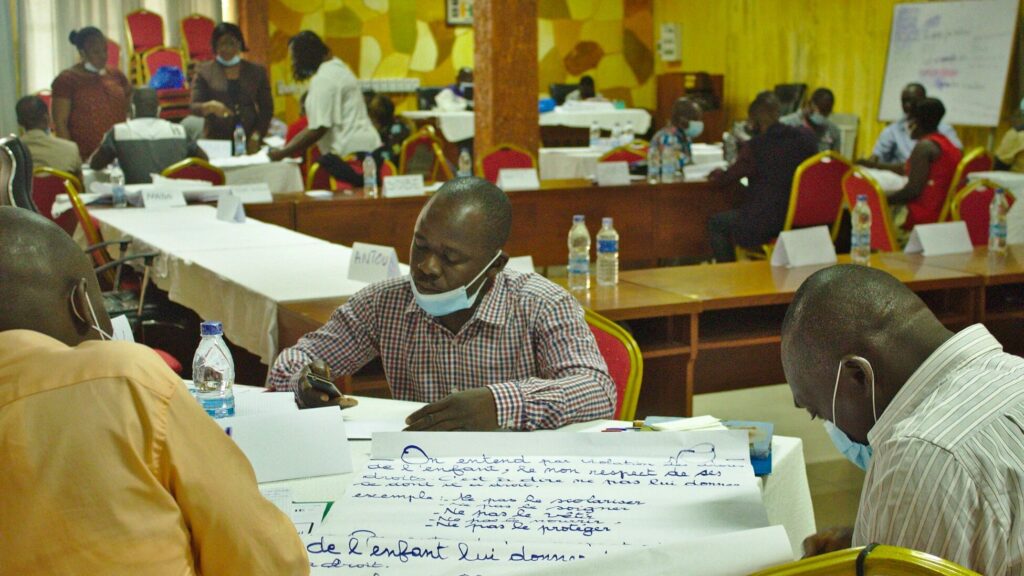
Changes and results at government level
Financial and technical support for National Action Plan
Throughout the process of drawing up the National Action Plan (NAP) to combat trafficking, exploitation and child labour for 2019-2023 and its implementation, the members of the WNCB alliance have provided financial and technical support.
Between 2021 and 2022, WNCB partners provided substantial support to Côte d’Ivoire for the development of the National Sustainable Cocoa Strategy (SNCD) as part of the dialogue between Côte d’Ivoire and the European Union. This support included strengthening the child protection component within the SNCD and proposing revisions to the child labour monitoring and observation system.
Adoption of decrees
With the contribution of the WNCB programme, Côte d’Ivoire has recently adopted two decrees, one on temporary foster families (FAT) and the other on replacement protection facilities (EPR). A foster family is a family accredited to take into its home an infant, child or teenager (aged 0-18) entrusted to it by the guardianship judge under a temporary placement order for protection purposes. The above-mentioned decrees help to formalize foster care in order to guarantee children genuine protection based on official standards that apply to everyone, and to carry out checks on these families by the state authorities. These decrees will help find solutions for children in child labour or at risk of child labour, especially those from the rural areas who need to be placed in foster families or those who are awaiting family reunification.

